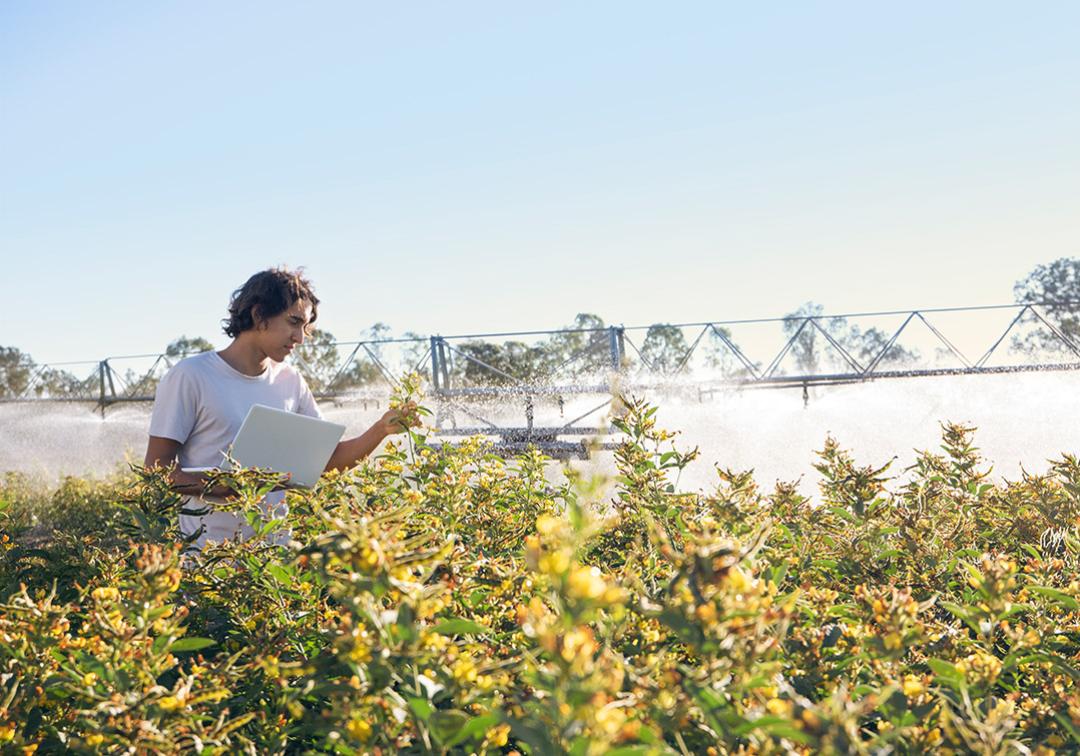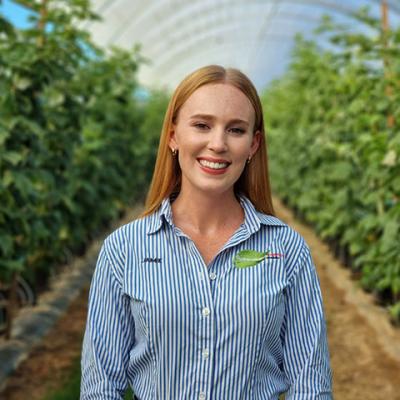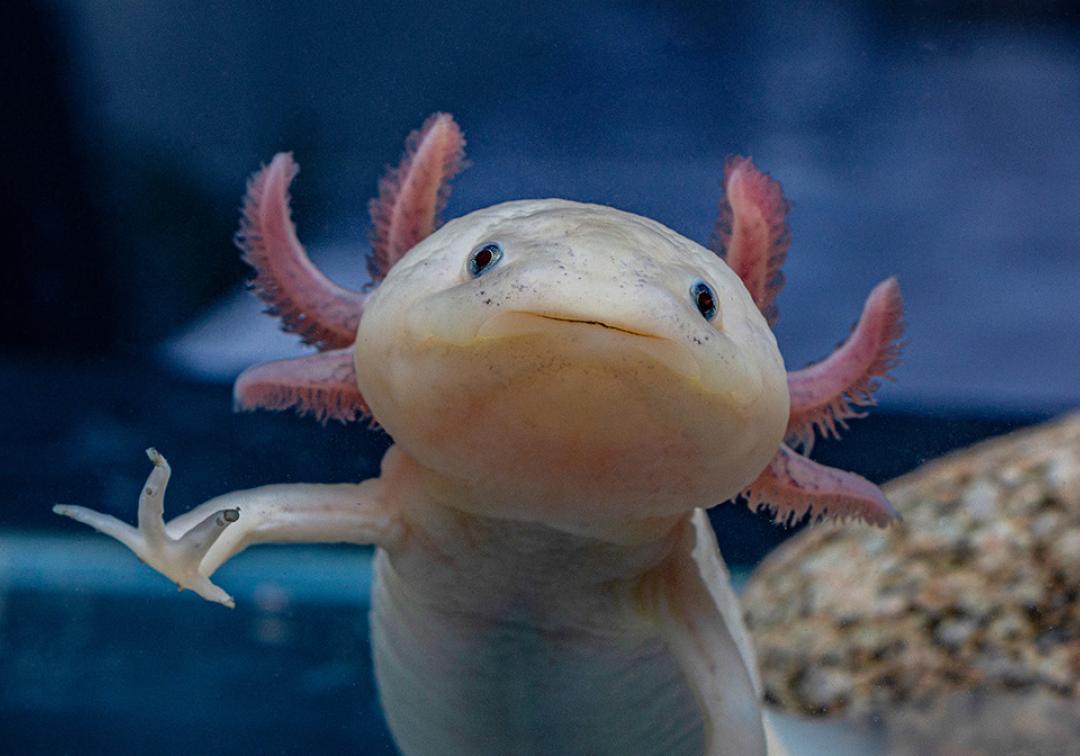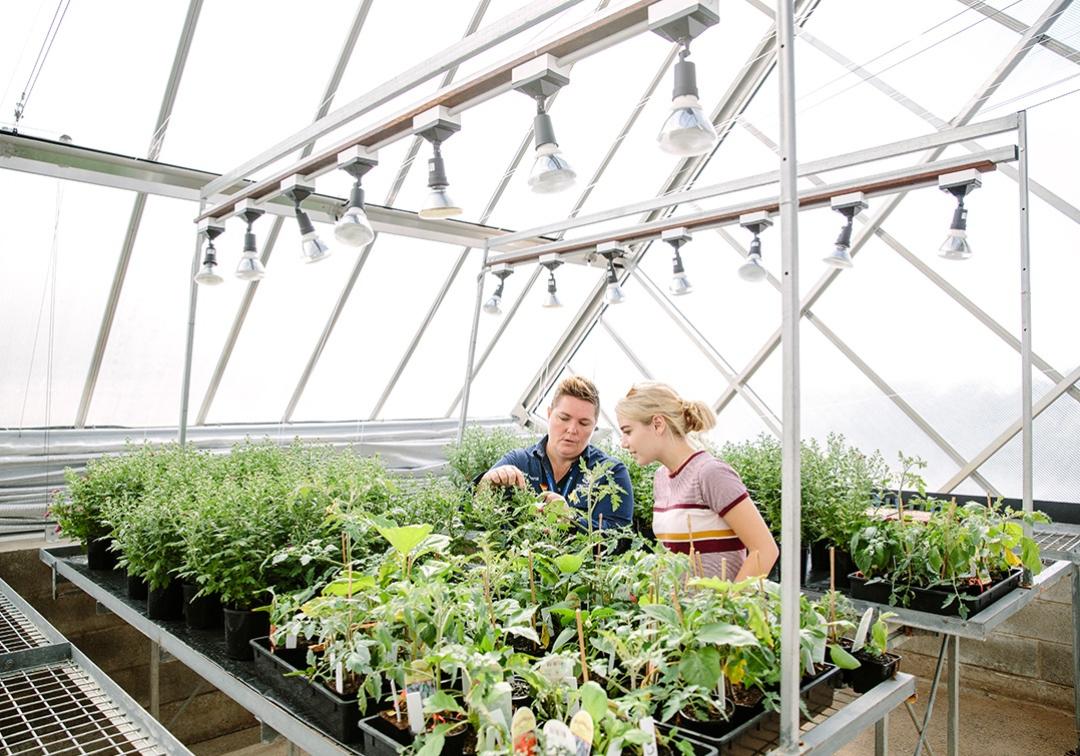
Gain an in-depth understanding of biology, chemistry, ecology, agronomic practices and earth sciences.
Learn to apply them to improve food production, create healthier food options, and even explore the use of plants as a source of energy.
Learn about resilient farming systems that can adapt to environmental changes, ensuring sustainable food and fibre production for the future.
Participate in hands-on practicals, industry visits and field trips throughout your degree, and gain in-demand practical skills and industry connections.
Take advantage of a 120-hour industry placement where you apply theory to practice, or enhance your research skills with the Summer and Winter Research Programs.
You'll study topics like:
- crop rotation
- irrigation
- plant breeding
- soil health
- pest control.
Explore how cutting-edge technology, including AI, automation and data analysis, is integrated into agriculture, equipping you with the skills to make informed decisions in the industry.
Access some of the best plant science teaching and research facilities in the Southern Hemisphere, including over 1,000 hectares of farmland, advanced research nursery and glasshouse facilities, and a pesticide wind tunnel facility.
Career possibilities
Our programs prepare you for your first job and beyond. Here are some of the careers you could be on your way to:
- Agronomist
- Research manager
- Trials specialist
- Development officer
- Crop scientist
Average annual salary range
Agronomist
seek.com.au
Average annual salary range
Research Manager
seek.com.au
Next steps after graduation
The agriculture sector contributes billions of dollars annually to the Australian and international economies.
You will find diverse career opportunities in organisations such as:
- local, national and international agribusiness companies such as agricultural service companies, banks, seed companies, food producers and agricultural consultancies
- research institutions, including universities and CSIRO
- local, state or federal government departments
- biosecurity, extension and animal production enterprises
- small- or large-scale organisations involved in production, post-harvest and marketing of horticultural products
- feed mills, stock equipment manufacturers, and livestock and poultry health companies within allied industries.
Alternatively, you can further your research ambitions by applying for a 12-month honours program.
Events
See all events
29 June
Queensland Biology Winter School, Year 12

1 July
International Baccalaureate Research Skills Program
Stories
See all stories
Careers
Career opportunities in agricultural science
4-minute read

Uni life
What's it really like to study agribusiness and agriculture at UQ?
5-minute read
Stories
See all stories
Careers
Career opportunities in agricultural science
4-minute read

Uni life
What's it really like to study agribusiness and agriculture at UQ?
5-minute read
How you'll learn
Your learning experiences are designed to best suit the learning outcomes of the courses you choose.
- Lectures
- Tutorials
- Work placements
- Research experience
- Laboratory work
- Fieldwork
- Workshops
What you'll study
At UQ, subjects are called 'courses'. Here's a sample of the courses you could study:
- Sustainable Agricultural & Animal Systems
- Agricultural Microbiology and Gene Technology
- Agricultural Biochemistry
- Analysis of Scientific Data
Keep up to date
Sign up to get information about applying and studying at UQ.





